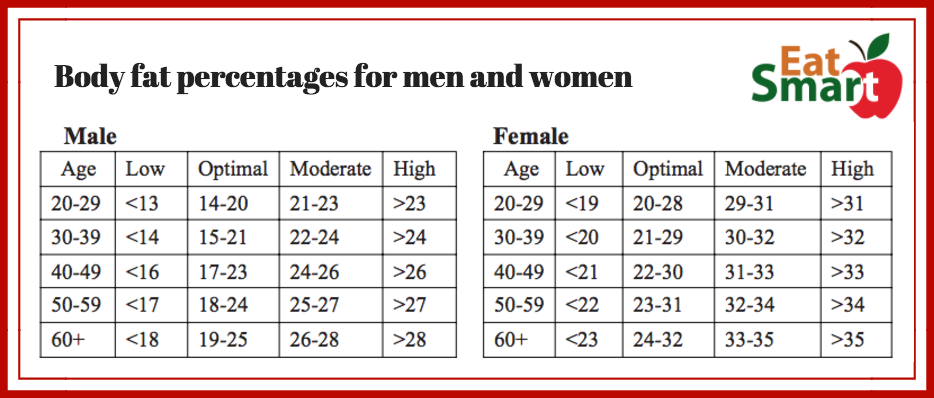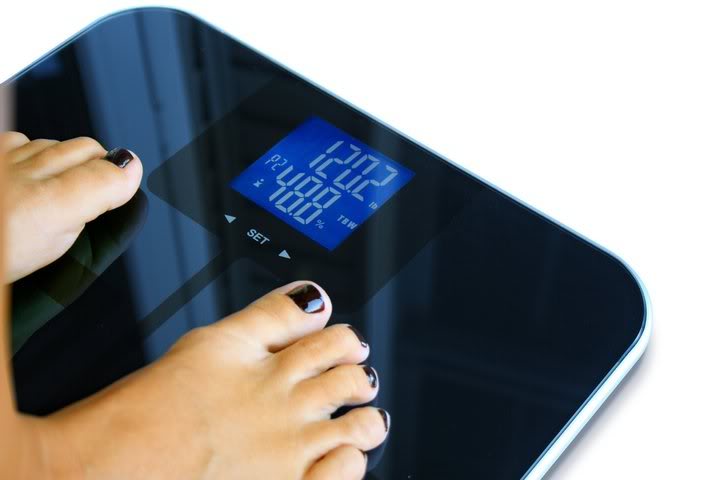January 23, 2024
Blog
What is a Healthy Body Fat Percentage?

Body fat percentage is the proportion of your weight that is made up of fat. The rest of your body is comprised of bone, muscle, and other lean tissue mass. There are two types of body fat: storage and essential. When your body fat percentage is in a healthy range, it helps reduce your risk of numerous medical conditions. Have you ever had your body fat analyzed? Tracking changes in body fat can actually provide a clearer picture of your health than simply measuring your weight. As you lose fat and build muscle, it is possible that your body composition is changing while your weight remains the same. Knowing that you have reduced your body fat can keep you motivated to stick with your healthy routine. But what exactly is a healthy body fat percentage? It varies between men and women as well as your activity levels. 

 Dropping below 15% for women and 6% for men for extended periods of time can lead to osteoporosis and general fatigue, as well as leave you prone to injury. For women, it can also lead to amenorrhea. On the flip side, having too much body fat increases the risk for cardiovascular disease and other health-related problems.
Dropping below 15% for women and 6% for men for extended periods of time can lead to osteoporosis and general fatigue, as well as leave you prone to injury. For women, it can also lead to amenorrhea. On the flip side, having too much body fat increases the risk for cardiovascular disease and other health-related problems.  In addition to body fat, the GetFit Scale estimates bone mass, body water, and muscle mass. It stores up to 8 different users' personal profiles and will be able to recognize these users as soon as they step onto the scale based on past weight. It can weigh up to 400 pounds and also has an athlete mode for very active users.
In addition to body fat, the GetFit Scale estimates bone mass, body water, and muscle mass. It stores up to 8 different users' personal profiles and will be able to recognize these users as soon as they step onto the scale based on past weight. It can weigh up to 400 pounds and also has an athlete mode for very active users.  Remember, comparing body fat percentages over time is only helpful if the weigh-ins or measurements are done under the same conditions, i.e. same time of day, amount of clothing, prior to exercise and eating, etc. You might also be interested in reading Why Your Body Fat Scale Readings Will NOT Add Up To 100%. If you're hoping to lose body fat or a few inches off your waist but aren't sure where to begin, read our post 30 Easy Ways to Get Started Losing Weight.
Remember, comparing body fat percentages over time is only helpful if the weigh-ins or measurements are done under the same conditions, i.e. same time of day, amount of clothing, prior to exercise and eating, etc. You might also be interested in reading Why Your Body Fat Scale Readings Will NOT Add Up To 100%. If you're hoping to lose body fat or a few inches off your waist but aren't sure where to begin, read our post 30 Easy Ways to Get Started Losing Weight.
Essential body fat
Essential body fat is the minimum fat required for the normal and healthy functioning of the body. It’s necessary for energy as well as playing an important role in the regulation of body temperature, the reduction of inflammation, blood clotting and brain development. Women need more essential body fat for childbearing and hormone functions, about 11% of their total body weight. Men need less essential fat, about 3% of total body weight.
Storage body fat
The other type of fat, called storage fat, is the result of excess calories. When we eat, calories that are not used right away for energy are converted into the triglycerides that make up storage fat. A frequent surplus of calories causes fat stores to accumulate, resulting in weight gain. On the other hand, if the body is uses stored fat reserves for energy, whether through diet or exercise, the fat cells will shrink causing weight loss.
Body fat percentages
Put simply, body fat is a collection of unused energy and is necessary for survival. Body fat percentage, is the ratio of fat to total body weight. Many factors such as age, height, gender, and genetics can impact this number. The following chart can help you determine a healthy body fat range. Dropping below 15% for women and 6% for men for extended periods of time can lead to osteoporosis and general fatigue, as well as leave you prone to injury. For women, it can also lead to amenorrhea. On the flip side, having too much body fat increases the risk for cardiovascular disease and other health-related problems.
Dropping below 15% for women and 6% for men for extended periods of time can lead to osteoporosis and general fatigue, as well as leave you prone to injury. For women, it can also lead to amenorrhea. On the flip side, having too much body fat increases the risk for cardiovascular disease and other health-related problems. How to measure Body Fat Percentage
There are several ways to calculate your body fat percentage, including bioelectrical impedance analysis found in body fat scales, skin-fold methods, hydrostatic weighing (which can be both expensive and difficult to find), or methods involving the circumference of various body parts. Our Precision GetFit Digital Body Fat Scale is both easy to use and inexpensive. Simply establish a user profile, which includes inputting your gender, height, age, and activity level, and the scale quickly provides your weight along with a breakdown of your body composition. When you weigh yourself in bare feet, BIA technology sends a low-level electrical signal though your body and then measures the resistance the signal encounters. This signal is perfectly safe and will not be felt. In addition to body fat, the GetFit Scale estimates bone mass, body water, and muscle mass. It stores up to 8 different users' personal profiles and will be able to recognize these users as soon as they step onto the scale based on past weight. It can weigh up to 400 pounds and also has an athlete mode for very active users.
In addition to body fat, the GetFit Scale estimates bone mass, body water, and muscle mass. It stores up to 8 different users' personal profiles and will be able to recognize these users as soon as they step onto the scale based on past weight. It can weigh up to 400 pounds and also has an athlete mode for very active users.  Remember, comparing body fat percentages over time is only helpful if the weigh-ins or measurements are done under the same conditions, i.e. same time of day, amount of clothing, prior to exercise and eating, etc. You might also be interested in reading Why Your Body Fat Scale Readings Will NOT Add Up To 100%. If you're hoping to lose body fat or a few inches off your waist but aren't sure where to begin, read our post 30 Easy Ways to Get Started Losing Weight.
Remember, comparing body fat percentages over time is only helpful if the weigh-ins or measurements are done under the same conditions, i.e. same time of day, amount of clothing, prior to exercise and eating, etc. You might also be interested in reading Why Your Body Fat Scale Readings Will NOT Add Up To 100%. If you're hoping to lose body fat or a few inches off your waist but aren't sure where to begin, read our post 30 Easy Ways to Get Started Losing Weight.

